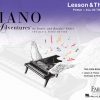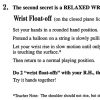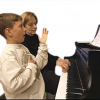Pandemic, Politics, and Piano
And “piano?” Is this seemingly misfit word pertinent? Indulge me to share a few personal stories of pandemic, politics, and piano—and then consider this trio of dynamics philosophically. Just a short year ago in Ann Arbor, I was dining out with pianist Emanuel Ax and a key Director of Pfizer. Together with the local symphony […]













